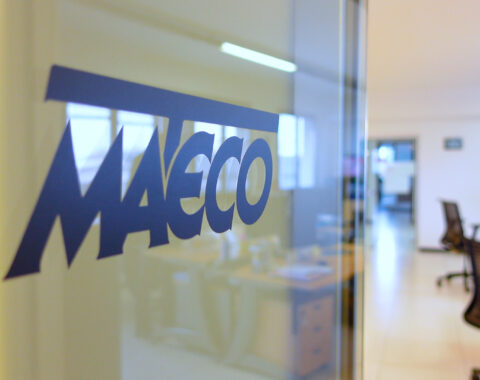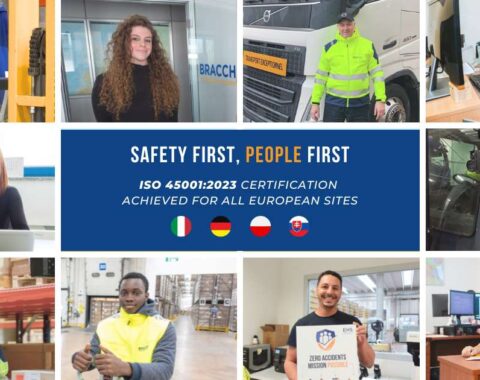Umberto Ferretti, Bracchi’s Chief Operating Officer and General Manager, recently told the media and print media about Bracchi’s results and future plans. “Turnover 2021 exceeds €155 million, a clear increase over 2020. In 2022 we will continue to keep an eye on potential acquisitions and continue to invest in technology, these are the challenges that the supply-chain world will face in the coming years.”

2021 was a year of great innovation and change for Bracchi. Our AD Umberto Ferretti decided to talk to media and printed media, and the answer has been incredible with the publications in major national newspapers (Il Sole 24 Ore, Il Corriere della Sera, Il Giorno), local newspapers (L’Eco di Bergamo e Il Giornale di Vicenza), trade papers (Euromerci, Il Mondo dei Trasporti), online news (TGCOM 24, Milano Finanza, Il Giorno, Ferpress, Affari italiani, Adnkronos).
The company has seen double-digit growth, consistent across every market in which we operate, from exceptional transport, to fashion logistics, to e-commerce services for companies. Bracchi experienced a 2021 of great expansion: turnover is expected to close above 155 million euros (in 2020, turnover was 142 million). The forecast for 2022 is to expand the portfolio of services offered and increase investments to support an equally challenging growth target.
“Our growth is as solid as the economic results that we are expecting fot this year”, explains Ferretti. “Our strategy is defined: we will continue to expand commercially, in particular by selling logistic spaces, but at the same time we are consolidating our long-standing relationships with long-term customers, including many multinationals”.
In 2021 the workforce increased too: today, Bracchi employs a total of more than 600 people at its Italian sites in Lombardy, Veneto and Emilia-Romagna and its foreign sites in Germany, Poland and Slovakia.

Ferretti’s main objectives include increasing corporate involvement in the areas of sustainability, quality and safety, “Bracchi’s growth is also the result of continuous investment in means of transport. Our fleet of vehicles is constantly being renewed with a view to the environment, LNG, CNG, electric and everything else that goes towards reducing the carbon footprint. Without forgetting the environment certifications for which we are in the process of extending recognition to all sites. By the end of the year all the company will get the 45001 and 14001 certifications, the international standards about safety and environment“.
As far as future prospects are concerned, Bracchi intends to focus its efforts in the coming years on technological innovation, process automation, and in particular shipment tracking, “We have also budgeted investments in information technology to enhance the performance of our processes. The logistics business is undergoing an interesting rebound”, explains Ferretti from the Headquarter in Bergamo. “For this reason we look to the future with optimism. We are continuously monitoring the market to assess acquisition opportunities to extend the scope of the company and to verticalise in specific segments. In the last three years we have successfully made two acquisitions, and we intend to continue along this path as an integral part of our business model”.
Ferretti then analyses the historical moment of the sector. “The key role that logistic represents for our country has clearly emerged during the pandemic. In addition to Italy’s well-known infrastructural shortcomings, a major problem facing the transports industry is the lack of drivers”, said Ferretti. “People and talents are at the forefront of our corporate strategy, we are looking for logistic engineers, traffic engineers, drivers and we are implementing new models of personnel management to support the career plans of potential young people in the company“.
Ferretti thinks that the logistic sector is destined to to play an increasingly central role, also in connection with some relocation processes following the pandemic. “Companies like ours are closer to companies and customers than the multinational giants, whose standardised services make it difficult for them to tailor their services to the needs of the market”.



